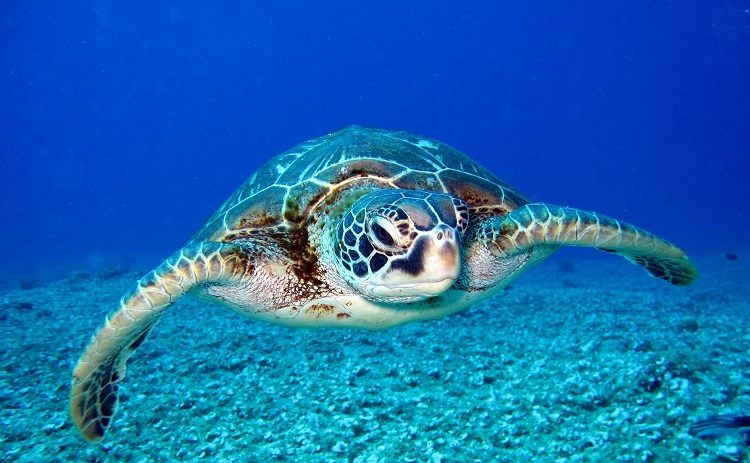Water pollution poses a significant threat to the delicate balance of ecosystems worldwide, causing widespread harm to aquatic life. From chemical runoff to plastic waste, the consequences of human activities on water quality are far-reaching. Amidst the environmental crisis, Brevard Zoo has initiated a groundbreaking study revealing an unexpected consequence of water pollution. Renowned for its commitment to wildlife conservation, the zoo explores intricate relationships between environmental factors and animal health.
In a recent revelation, their study unveils an unrecognized link between water pollution and the prevalence of herpes among turtle populations. This unexpected correlation sends ripples through the scientific community, emphasizing the impact of human-induced environmental changes. Brevard Zoo’s research highlights how even the most resilient species, like turtles, can be significantly affected by altered environmental conditions.
Understanding these connections is not merely an academic pursuit but a crucial step toward effective conservation strategies. Turtles, as ancient inhabitants of both terrestrial and aquatic environments, play a vital role in maintaining ecological balance. Their susceptibility to herpes, exacerbated by deteriorating water quality, raises alarms for their survival and the broader health of our ecosystems. By unraveling the complexities of this relationship, we gain valuable insights into the broader impact of water pollution on wildlife, reinforcing the urgency of adopting sustainable practices.
Read more : L.A.X’s 500M Lawsuit Against ‘Herpes’ Allegation
Understanding Water Pollution
Water pollution, a pressing environmental issue, introduces harmful substances into aquatic ecosystems, disrupting their natural balance. This section will explore the definition and various types of water pollution, shedding light on its intricate complexities. We will investigate significant pollutants affecting aquatic ecosystems, examining their sources and impact on marine environments. The analysis will extend to the far-reaching consequences of water pollution on marine life, emphasizing the urgent need for comprehensive understanding and action.
Water pollution is the contamination of water bodies, including lakes, rivers, oceans, and groundwater, by substances harmful to living organisms. This contamination can occur through human activities such as industrial discharges, agricultural runoff, and improper waste disposal. The different types of water pollution include chemical, biological, and physical pollution. Chemical pollution involves the release of toxic substances into water, biological pollution consists of the introduction of harmful microorganisms, and physical pollution refers to the presence of non-biodegradable materials.
Several pollutants significantly impact the health of aquatic ecosystems. Agricultural runoff, carrying pesticides and fertilizers, poses a threat by introducing excess nutrients into the water, leading to harmful algal blooms and oxygen depletion. Industrial discharges release heavy metals, toxins, and chemicals into water bodies, posing risks to aquatic organisms. Plastics and other non-biodegradable materials contribute to physical pollution, affecting marine life through ingestion and entanglement.
The consequences of water pollution on marine life are profound and wide-ranging. Elevated levels of pollutants can harm aquatic organisms directly, leading to reduced reproductive success, developmental abnormalities, and compromised immune systems. Additionally, pollution can degrade habitats, disrupt food chains, and contribute to the decline of vulnerable species.
The Turtle Herpes Connection
Brevard Zoo’s groundbreaking study sought to unravel mysteries surrounding the unexpected link between water pollution and the spread of herpes among turtles. The study utilized a multidisciplinary approach, integrating field observations, water quality analyses, and comprehensive health assessments. Researchers meticulously collected data, examining the interplay between water quality and the health of turtle populations under the zoo’s care. The study’s comprehensive methodology aimed to provide a holistic understanding of how environmental factors contribute to the prevalence of herpes among turtles. Researchers meticulously collected data on water parameters, pollutant concentrations, and the prevalence of herpes among the turtle populations.
The research methods involved the collection of water samples from various habitats frequented by turtles, ranging from pristine environments to areas significantly impacted by human activities. These samples underwent thorough analysis to identify and quantify pollutants. Concurrently, turtles’ health was closely monitored, particularly for herpes infection. The correlation between water quality and the prevalence of herpes was striking. Areas with higher pollution levels exhibited a correspondingly elevated incidence of herpes among turtles, indicating a direct association between water quality and the health of these reptiles.
The findings challenged conventional wisdom about the factors contributing to herpes outbreaks in turtles. While environmental stressors have long been suspected, the specific role of water pollution in exacerbating the spread of herpes was previously overlooked. This discovery complicates our understanding of the intricate relationship between environmental factors and wildlife health.
Read more: Unveiling the Presence of Herpes in Florida’s Monkeys
Discussion on How Herpes is Affecting Turtle Populations
The study shed light on the detrimental effects of herpes on turtle populations. Herpes outbreaks were found to weaken the immune systems of infected turtles, making them more susceptible to other diseases. Additionally, the reproductive success of infected individuals declined, impacting the overall sustainability of turtle populations. Recognizing these consequences underscores the urgency of addressing the factors contributing to the spread of herpes, with water pollution emerging as a key influencer.
Recognizing the link between water quality and turtle health is paramount for effective conservation strategies. Addressing water pollution helps mitigate immediate threats to turtle populations. By doing so, we contribute to aquatic ecosystems’ overall health and resilience. This newfound understanding underscores the interconnectedness of environmental factors and wildlife well-being. It guides us toward more informed and impactful conservation efforts. Recognizing the link between water quality and turtle health is crucial for effective and sustainable conservation strategies.
Brevard Zoo’s Role in Conservation
Brevard Zoo has long been a stalwart champion of wildlife conservation, dedicating its resources and expertise to safeguarding the diversity of Earth’s species. Their commitment extends beyond providing a haven for animals in captivity; it is a proactive engagement with the broader mission of preserving ecosystems and promoting sustainable coexistence. The zoo’s vision integrates education, research, and advocacy, recognizing the interconnectedness of all living beings.
In alignment with their conservation commitment, Brevard Zoo has launched projects focusing on water quality and turtle health. A notable project involves collaborating with environmental agencies and research institutions to monitor and improve water quality in crucial turtle habitats. The zoo actively supports rehabilitation programs for turtles affected by herpes, utilizing veterinary expertise and collaborating with specialists on recovery strategies. Brevard Zoo’s initiatives aim to address immediate threats from water pollution and contribute valuable data for broader conservation efforts. Through these efforts, the zoo plays a pivotal role in safeguarding the well-being of turtles and contributing to the overall health of aquatic ecosystems.
The success of Brevard Zoo’s conservation endeavors relies on collective support. Individuals, businesses, and communities can contribute by engaging with the zoo’s educational programs, volunteering, or donating. By supporting Brevard Zoo and organizations with similar missions, you become an integral part of the solution, actively participating in preserving our planet’s biodiversity and the well-being of its inhabitants. Your involvement makes a tangible difference in creating a sustainable future for wildlife and ecosystems.
Conclusion
In conclusion, Brevard Zoo’s groundbreaking study has unveiled a critical aspect of our environmental challenges. Our journey began with an overview of water pollution, emphasizing its pervasive impact on wildlife. This set the stage for a closer examination of the surprising link between water pollution and herpes spread among turtles. The Brevard Zoo’s research methods and findings illuminated the intricate connection between water quality and turtle health. It urges us to reconsider the factors influencing the well-being of these ancient creatures.
The consequences of herpes outbreaks extend beyond individual health, affecting the reproduction and broader stability of marine ecosystems. The consequences of herpes outbreaks in turtles extend beyond individual health, impacting reproduction and the broader stability of marine ecosystems.
Recognizing the urgency of addressing water pollution for turtles and the marine web underscores the need for immediate action. As stewards of our planet, we are called to contribute to conservation efforts. Whether supporting organizations like Brevard Zoo, adopting sustainable practices, or raising awareness, every individual plays a role. Each person contributes to preserving the delicate balance of our oceans and the life they sustain. Together, we can forge a path towards a cleaner, healthier environment for turtles and future generations. Join the cause and let your actions become a ripple of positive change in the vast ocean of conservation.
Reference: Water pollution could be causing turtles to spread herpes, Brevard Zoo says



